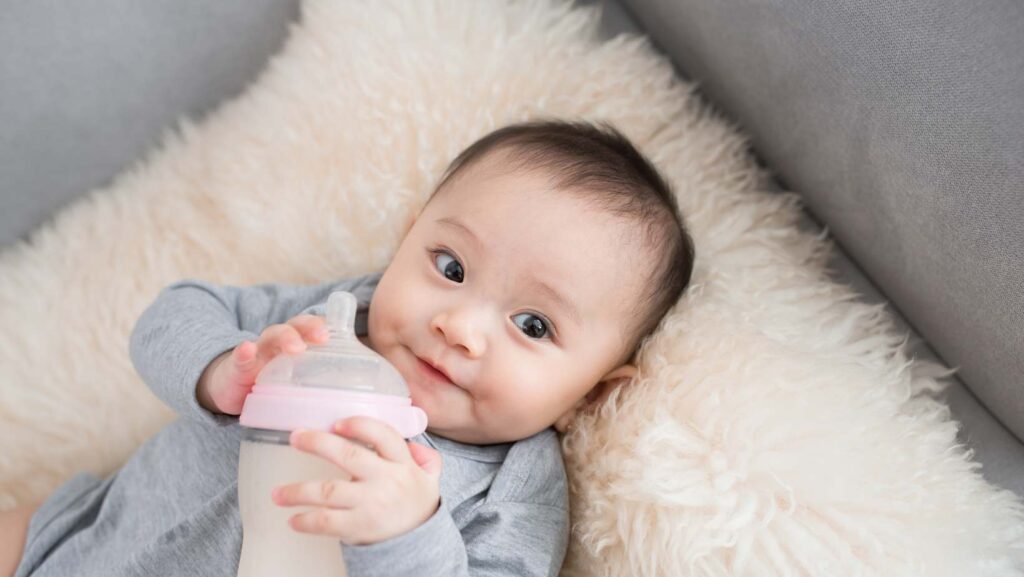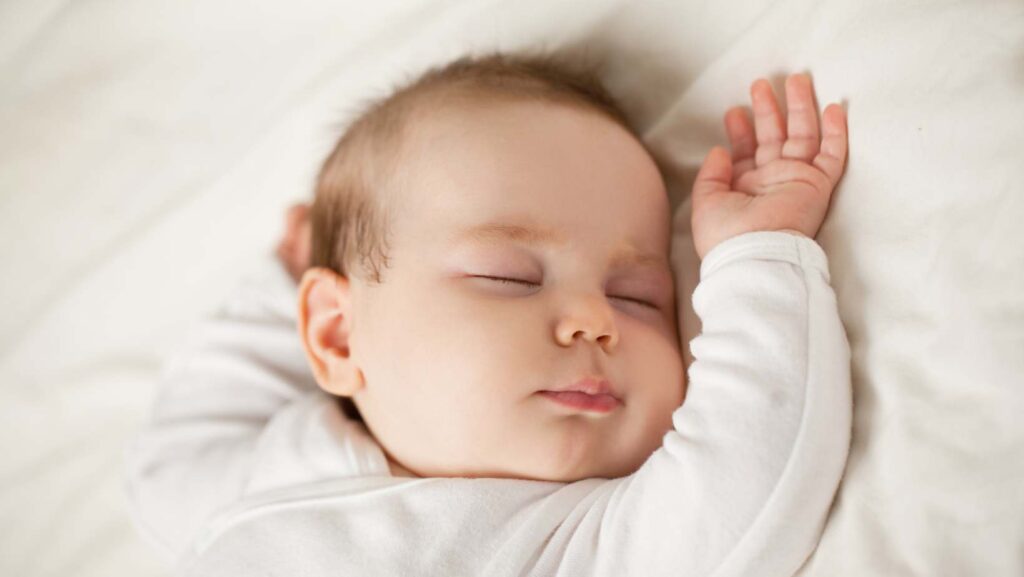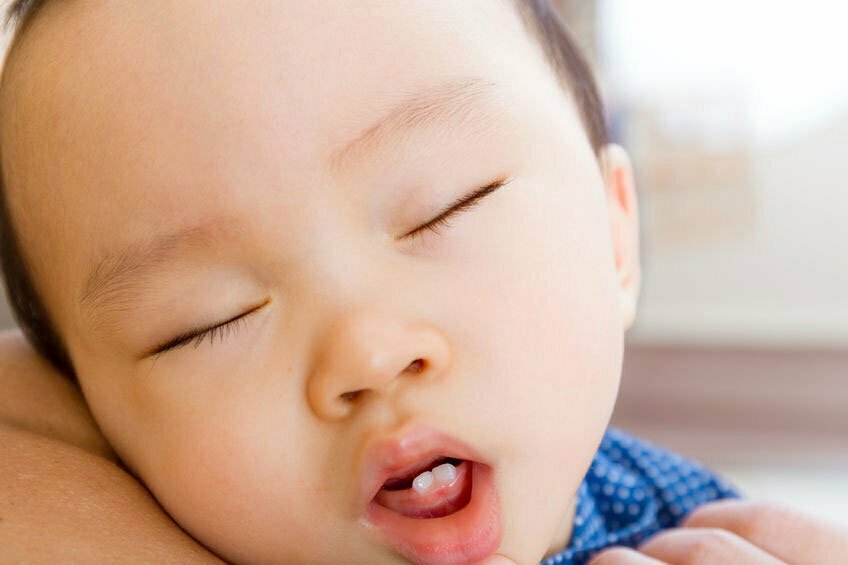Baby’s lips turn white after feeding because the blood flow to the area decreases due to pressure from the nipple and excessive sucking. This happens because the baby’s lips are highly vascular, meaning they have a lot of blood vessels that can quickly fill up and create a white appearance.
While this may be alarming to new parents, it is a common and benign occurrence that usually resolves on its own within a few minutes. However, if white lips persist for an extended period or are accompanied by other symptoms, it may indicate a medical issue and warrant a visit to the pediatrician.
Understanding this phenomenon can help parents feel more at ease and ensure the health and well-being of their little ones.

Contents
Understanding Baby’s Lips Turning White After Feeding
Babies are delicate beings that require close attention, especially when feeding. Some parents have noticed that their baby’s lips turn white after feeding, which can be alarming. However, you don’t need to worry, as this phenomenon is not harmful and can be easily explained.
This blog post helps you understand why your baby’s lips turn white after feeding.
Explanation of the mechanism that causes white lips in babies after feeding
When babies feed, they use their lips to create a seal around the nipple, enabling them to suck and swallow milk. Afterward, their lips may appear white. This is because of the pressure placed on their lips when feeding.
The pressure causes some of the blood to be pushed away from the lips, giving them a white appearance. Once the pressure is removed, the blood flows back into the lips, returning them to their usual color.
Analysis of the Science Behind the Phenomenon
White lips after feeding are typical in infants and are not a cause for concern. It is a natural response to the pressure on the lips during feeding. The lips being pushed away from the blood vessels is a protective mechanism, ensuring the baby doesn’t choke.
Hence, it is a sign that the baby’s lips usually function.
Mention the Various Theories That Try To Explain Why This Phenomenon Occurs
Several theories explain why a baby’s lips turn white after feeding. Some scientists believe it could be related to the baby’s circulation system; others think it could be due to the pressure applied to the lips during feeding.
However, the most widely accepted way to understand this is that it is a natural body process due to the lip muscles contracting while feeding.
White lips in babies after feeding might seem unusual, but it is expected. There is no need to panic; rest assured that your baby’s lips function correctly. As long as your baby seems happy and healthy and is feeding well, there is nothing to worry about.
So continue to feed your baby with confidence.
The Surprising Reason Behind Baby’s Lips Turning White After Feeding
It’s common to see a baby with white lips after feeding, and as a new parent, you may be worried when this happens. However, the truth is that the reason behind the occurrence of white lips is usually overlooked or misunderstood.
We’ll take a closer look at the surprising reason why babies’ lips turn white after feeding.
How is this reason usually overlooked or misunderstood?
The surprising reason babies’ lips turn white after feeding is poor blood circulation. However, this reason usually goes overlooked, and sometimes it is even misinterpreted as a medical condition. Here are some possible explanations for why this occurs:
- New parents might not know how the baby’s circulatory system works.
- The baby’s body is still adjusting to changes outside the womb.
- Sometimes, the white appearance could be due to a medical condition, leading parents to panic.
How Does the Reason Unfold and Cause White Lips in Babies?
During feeding, a baby’s body diverts blood circulation toward its digestive system to assist digestion. Thus, the blood vessels in the lips become constricted, leading to a limited amount of oxygen and less blood flow, causing the lips to turn white.
The white lips are usually more visible in fair-skinned babies.
Any underlying factors that may contribute to the surprising reason
While poor blood circulation during feeding is the primary cause of white lips in babies, some underlying factors may lead to the occurrence. They include:
- Low room temperature.
- Dehydration from an inadequate milk supply
- Anemia.
- Vitamin B12 deficiency.
Poor blood circulation is a surprising reason a baby’s lips turn white after feeding. New parents should not panic when they observe this. It is harmless, and the lips will quickly return to their standard color.
Possible Solutions for Parents and Caretakers
If you notice your baby’s lips turning white after feeding, there are some practical steps you can take to alleviate the issue. The following suggestions can help you avoid or manage this phenomenon:
Adjust the feeding technique.
Improper feeding technique is one of the leading causes of white lips in babies after feeding. You can take the following steps to mitigate the issue:
- Hold your baby’s head up at a 45-degree angle while providing.
- Keep the bottle or breast level with your baby’s mouth.
- Avoid tilting the bottle too high, leading to excess air intake and causing white lips.
- Monitor your baby’s latch and ensure that they take the nipple or bottle deeply into their mouth.
By taking these steps, you can facilitate efficient feeding, which aids in reducing white lips in your baby.
Hydrate your baby.
Sometimes, white lips after feeding indicate dehydration. You can keep your baby hydrated by:
- Offering water between feedings if your baby is six months or older
- Breastfeeding on demand frequently to ensure your baby is adequately hydrated
By hydrating your baby, you can help prevent white lips from appearing.
Check the room temperature.
When the air is too cold or dry, babies can experience white lips after feeding. To counter this, you can:
- Keep the baby warm by wrapping them in a blanket during feeding.
- Use a humidifier in your baby’s room to add moisture to the air.
By maintaining the proper environmental conditions, you can reduce the occurrence of white lips in your baby.
Use barrier creams.
If the cause of white lips is the baby’s saliva irritates the skin around their mouth, you can use a barrier cream to protect the skin. You can use the following:
- Petroleum jelly
- Aquaphor
- Coconut oil
Applying barrier creams, help protect your baby’s skin and avoid white lips after feeding.
Seek medical advice.
In some rare cases, white lips may indicate underlying health issues, such as a respiratory problem or allergy. If the abovementioned interventions do not resolve the issue, consult a pediatrician. They can advise you on the best action to treat the pain.
In conclusion,
White lips in babies after feeding can cause concern and anxiety in parents and caregivers. However, with proper interventions, parents can avoid or manage this phenomenon. By adjusting feeding techniques, hydrating the baby, maintaining good environmental conditions, using barrier creams, and seeking medical advice, parents can help their babies avoid white lips after feeding.

When to Worry: Understanding the Risks and Possible Complications
Normal Limits of Baby’s Lips Turning White After Feeding
It is common for a baby’s lips to turn white after feeding; in some cases, it is pretty standard. This phenomenon occurs due to a suction blister, a small blister similar to a blood blister that forms due to the baby’s sucking action.
The blister causes a temporary loss of blood flow to the site, resulting in a white appearance. This suction blister usually disappears quickly, and no treatment is necessary.
Discussion on When It Could Be A Cause For Concern
While it is normal for a baby’s lips to turn white after feeding, there are cases when it could be a cause for concern. Here are some instances when parents should start to worry:
- The baby’s lips remain white for an extended period.
- The white area looks raised or appears to have a growth that does not go away with time.
- The white area spreads or develops into other symptoms, such as redness, inflammation, or a rash.
If parents notice these symptoms, it’s best to consult their pediatrician immediately.
Analysis of the Possible Complications of the Phenomenon
Fortunately, no complications are usually associated with a baby’s lips turning white after feeding. However, in rare cases, complications such as oral thrush and a fungal infection that appears as white patches on the baby’s tongue and inner cheeks can occur.
Another potential complication is Raynaud’s phenomenon, where the blood vessels in the baby’s mouth constrict, reducing blood flow and causing the lips to turn white. Raynaud’s phenomenon can cause the baby discomfort and pain, and it’s essential to consult a pediatrician if they suspect this condition.
Tips for Identifying the Severity of the Problem and When to Seek Medical Attention
If a baby’s lips turn white after feeding, it can be challenging to tell if it’s a normal reaction or cause for concern. Here are some tips for identifying the severity of the situation and when to seek medical attention:
- If the baby’s lips turn white only during feeding and return to their standard color within a few minutes after the feeding, it’s likely a normal reaction and no cause for concern.
- If the baby’s lips remain white for an extended period, look raised, or develop other symptoms, it’s best to consult a pediatrician immediately.
- To prevent complications, parents should always ensure proper hygiene when feeding their baby and encourage good oral health habits as the baby grows.
Remember that if always best to consult a pediatrician. If you’re ever in doubt can help reassure parents about what’s normal and offer guidance on keeping babies healthy and happy.
Frequently Asked Questions
Why do babies’ lips turn white after feeding?
Babies’ lips may turn white after feeding due to pressure applied during breastfeeding or bottle-feeding. This is entirely normal and not a cause for concern. Blood flow will return to the lips shortly after feeding.
Is it normal for a baby’s lips to be pale?
Yes, it is normal for a baby’s lips to be pale or slightly blue sometimes, especially cold. If the lips are white or blue for an extended period and are accompanied by other symptoms, seek medical attention.
What Should I Do If My Baby’s Lips Stay White After Feeding?
If your baby’s lips are white for an extended period after feeding, try massaging the lips gently or rubbing a warm washcloth over them to encourage blood flow. If the problem persists, consult with your pediatrician.
Conclusion
If you’ve ever noticed white lips on your baby after feeding, it’s not uncommon to worry. But there’s usually no need to panic. Many babies have white lips after feeding, and it’s generally just dried milk. However, if you’re still uncertain or if thieves symptoms like a change in breathing, low energy, or a lack of appetite, consult a doctor immediately with most things related to infant care; it’s always best to err on caution. In most cases, white lips are harmless and will go away on their own, but in rare instances, they could be a symptom of a more severe condition.
Remember, too, that every baby is different, so what might be considered “normal” for one may not be the case for another. In the end, trust your instincts and reach out to a medical professional if needed.

I am an accomplished writer, a devoted father, and a compassionate advocate for new and experienced parents in my baby’s parenting journey. With a wealth of firsthand experience and a deep understanding of the joys and challenges of raising children, I become a trusted voice in the parenting community.


